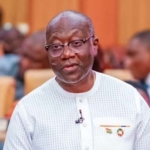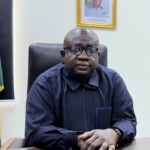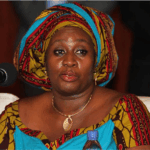
The protracted legal and political struggle to extradite former Finance Minister Ken Ofori-Atta from the United States to face corruption charges has become a defining test for Ghana’s commitment to accountability. This standoff sets the meticulous requirements of international law against intense domestic pressure for immediate justice.
The scope of accusations and the genesis
The investigation by the Office of the Special Prosecutor (OSP) began in January 2025, focusing on multiple corruption-related offences allegedly committed during Ofori-Atta’s tenure.
The allegations are wide-ranging and significant, including financial misconduct in contracts related to the controversial National Cathedral project, revenue-assurance arrangements (specifically the Strategic Mobilisation Ghana Limited (SML) contract), and the termination of the contract between the Electricity Company of Ghana (ECG) and Beijing Xiao Cheng Technology (BXC).
The OSP’s cases also extend to suspected corruption in the operations of the Minerals Income Investment Fund (MIIF) concerning Agyapa Royalties Limited, issues regarding the utilisation of the Tax Refund Account of the Ghana Revenue Authority, and procurement processes for 307 ambulances. Crucially, the OSP is building a case primarily focused on the statutory offence of Causing Financial Loss to the State under Ghana’s Criminal Offences Act (Act 29).
After the former minister failed to appear for questioning on February 10, 2025, citing medical reasons, the OSP took the dramatic step of first declaring him a “wanted person, being a fugitive from justice” in February 2025.
This status was temporarily removed after Ofori-Atta’s lawyers pledged he would return by June 2, 2025. Upon his subsequent failure to appear, the OSP re-declared him a wanted person and secured an Interpol Red Notice in June 2025 —a request to police worldwide to detain him pending extradition.
The Interpol notice lists the charge as “Using Public Office for Profit”. The OSP remains unconvinced by the medical defence, publicly maintaining that Ofori-Atta’s absence is an intentional evasion, noting: “We are convinced that the real intention of Mr. Ofori-Atta is… he has left the jurisdiction indefinitely.”
Ofori-Atta’s counter-legal strategy and defence
The former Finance Minister’s legal team, led by Frank Davies, attributes his absence entirely to health issues, insisting his client is abroad for post-surgery recuperation and is not a “fugitive.” They stress that Ofori-Atta “has made himself available through legally permissible means” by communicating through his lawyers, rejecting the OSP’s demand for his physical presence.
Lawyer Frank Davies confirmed his client’s presence abroad for post-surgery recuperation, insisting his absence is not an evasion of justice. Mr. Davies stressed, “He is still recovering from surgery. My client is recuperating and when he is fully fit and able, he will return to Ghana.”
The dispute over medical proof escalated when Davies rebutted Special Prosecutor Kissi Agyebeng’s claim that no medical documentation was received, stating the report was part of court filings served to the OSP on May 27, 2025.
Crucially, to challenge the OSP’s action and the “wanted person” declaration, Ofori-Atta’s lawyers filed a lawsuit against the OSP in the High Court in February 2025, contending that the declaration was an “unfettered infringement of Ofori-Atta’s rights to personal liberty and freedom of movement.” This direct legal challenge, which seeks to set aside the fugitive status, represents a significant part of the defense strategy and adds a key judicial element to the standoff.
In defence of his client’s rights, Frank Davies was cited by the AP as saying the OSP’s declaration was “very condescending” and an “unfettered infringement of Ofori-Atta’s rights to personal liberty and freedom of movement.”
Institutional Friction: The AG vs. OSP standoff
The process is stalled by a public rift between two key anti-corruption institutions: the Attorney General’s (AG) Department and the OSP.
The AG’s Legal Barrier: The AG’s Department, as the sole authority for lodging the formal extradition request, argues the process is stalled because the OSP has failed to provide a “solid case — a docket that has been built” that meets stringent international standards, especially those required by the U.S. Department of Justice.
This view, articulated by legal experts like Attorney General Dominic Ayine, stresses that formal charges and comprehensive documentation are mandatory before the AG can proceed, concluding: “Without a docket, we cannot make the request. So we are still waiting for the docket.”
Deputy Attorney General Dr. Justice Srem-Sai has publicly expressed frustration, stating the AG’s office has made “several requests” for the docket over “about two months” without success.
Special Prosecutor Kissi Agyebeng’s OSP has consistently denied any friction, attributing the delay solely to “timing” as it finalises its work and prepares to file additional charges.
Despite this public denial, the inter-agency rivalry—fueled by document leaks and public exchanges—has been sharply criticized. Anti-corruption campaigner Edem Sananu warned that this internal behavior “undermines our capacity to make sure this extradition is done and done speedily.” This institutional weakness is a key concern for Ghanaians.
Extradition Procedures vs. Docket Readiness
Contradicting the notion of a complete standstill, the Deputy Attorney General reportedly confirmed that formal extradition procedures have, in fact, been initiated.
Additionally, U.S. authorities are reportedly cooperating and have assessed that the charges do not appear to be a political witch-hunt, removing a potential political barrier. The OSP has also publicly stated its intent to “prefer criminal charges in the courts… whether in absentia or otherwise,” though their official legal interpretation for a trial in absentia requires a suspect to have been formally charged and appeared in court before absconding.
This highlights a crucial internal legal debate within the prosecution’s strategy. It is noted that Ofori-Atta’s lawyers alleged a raid on his house by armed men in February 2025, a claim the OSP publicly denied, stating such conduct is “not our style.”
The Stakes: Financial loss and the taxpayer’s burden
For the average Ghanaian, this case is not merely about legal precedent; it is deeply personal and emotional. The controversies surrounding the National Cathedral and SML contracts represent alleged financial mismanagement involving millions of dollars, funds that citizens feel were diverted from crucial public services during a period of severe economic hardship, including the Domestic Debt Exchange Programme (“financial haircuts”).
The public’s intense focus stems from a sense of betrayal—the belief that the elite are insulated from consequences while ordinary families bear the brunt of austerity.
This profound sense of injustice is articulated across social media and public discourse. A frustrated Ghanaian citizen, who declined to be named, said: “They make it clear every day that there are two Ghanas: one for the poor, where the law bites fast and hard, and one for the powerful, where justice waits for their doctors’ note.”
This sentiment reflects the public’s concern that the integrity of the justice system itself is being undermined by the protracted delays and institutional posturing. Another citizen, a market vendor in Accra, expressed her deep disappointment: “We suffered through the financial haircuts, and now the man responsible is on a medical holiday abroad. It is a mockery of the taxpayer’s sacrifice.”
Political criticism and diplomatic perspectives
The opposition National Democratic Congress (NDC) has been highly critical, framing the delay as institutional failure. Deputy General Secretary Mustapha Gbande questioned the state’s effectiveness, asking “If the OSP cannot work with the FBI to bring Ken Ofori-Atta, then the FBI cannot come to Ghana to take people to the U.S.” This position frames the delay as institutional weakness.
Offering a sharp, neutral perspective, Franklin Cudjoe, President of IMANI Africa, criticised the government’s diplomatic posture. He argued that Ghana may have squandered a strategic opportunity to secure Ofori-Atta’s return by not leveraging its recent cooperation with the U.S. on accepting deportees in a quid pro quo or “swap deal.” Cudjoe asserts that the cases are straightforward and the AG’s team already has sufficient basis to proceed, urging the two key anti-corruption bodies to end their “turf wars.”
Public sentiment and the path forward
Public interest remains intense, characterised by deep-seated frustration and a demand for high-profile accountability. The emotional response is captured by citizens like Rodaline Imoru Ayarna, who publicly urged Ghanaians abroad to “Spot Ofori-Atta in the US? Make a citizen’s arrest—he must return to Ghana.”
Ultimately, the political heat will continue to rise until the OSP is able to deliver a trial-ready docket that meets the stringent legal criteria of the U.S. Department of Justice. The path forward demands an immediate end to the institutional rivalry and a cohesive, collaborative effort between Ghana’s legal and investigative bodies to prove that no one, regardless of political affiliation or status, is above the law.


